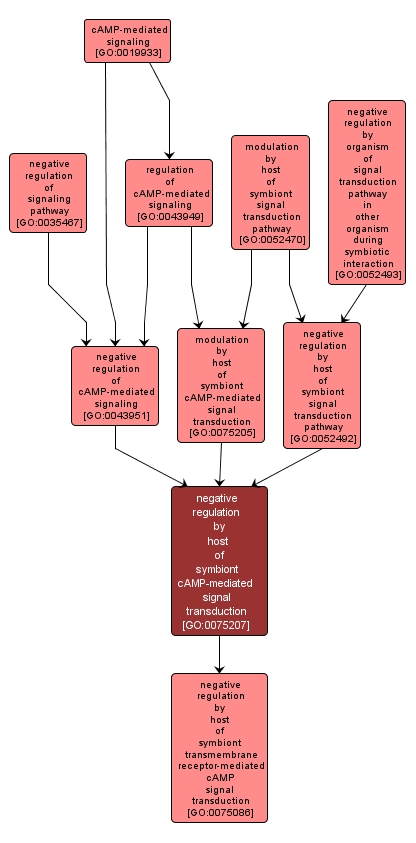GO TERM SUMMARY
|
| Name: |
negative regulation by host of symbiont cAMP-mediated signal transduction |
| Acc: |
GO:0075207 |
| Aspect: |
Biological Process |
| Desc: |
Any process by which the host organism stops, prevents or reduces the frequency, rate or extent of cAMP-mediated signal transduction in the symbiont. The host is defined as the larger of the organisms involved in a symbiotic interaction. |
Synonyms:
- negative regulation by host of symbiont cAMP-mediated signaling
|
|

|
INTERACTIVE GO GRAPH
|














